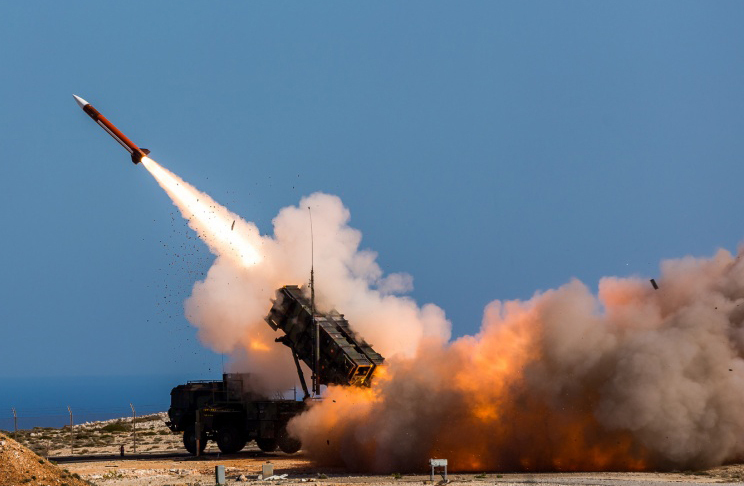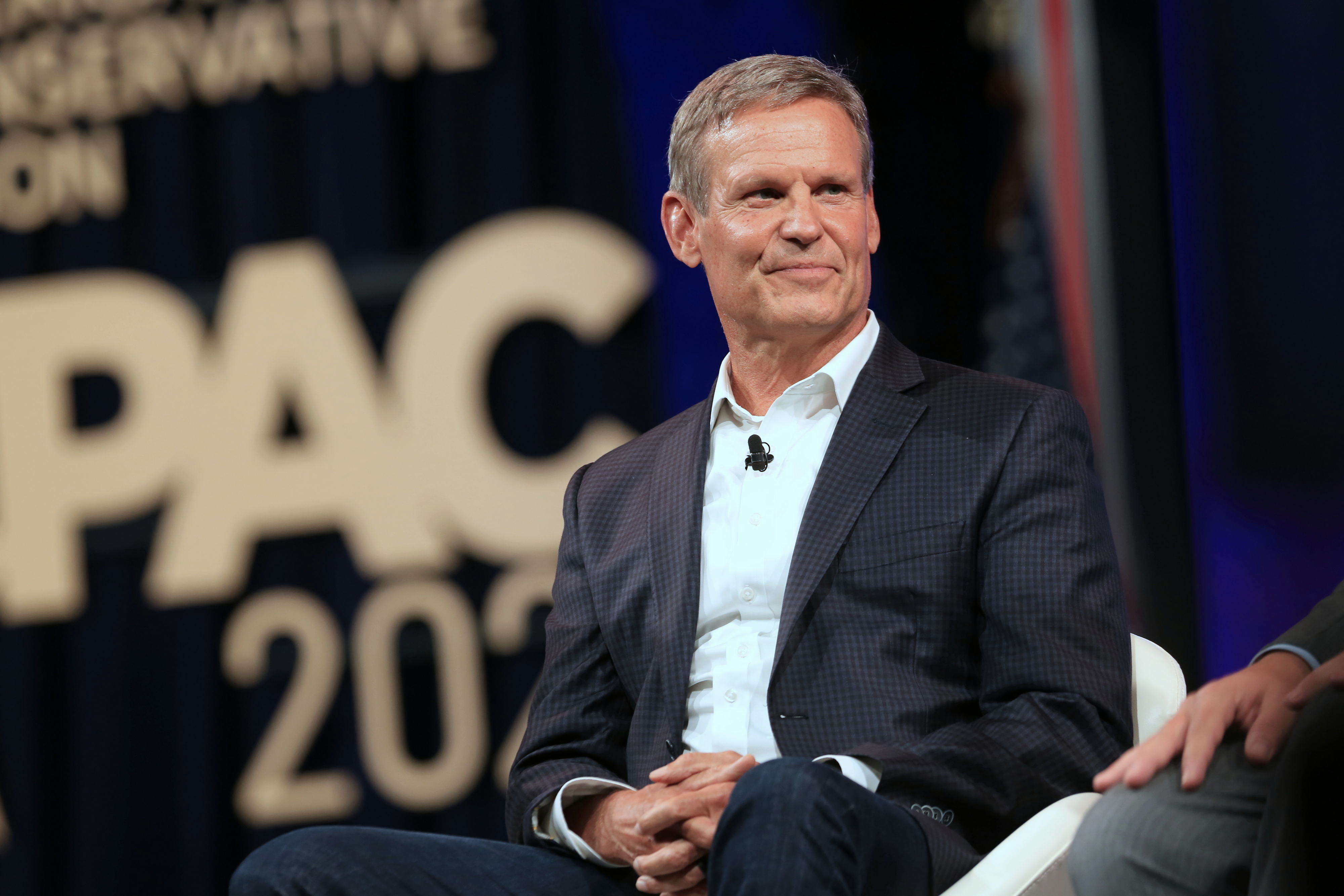The U.S. ambassador to the European Union told House impeachment investigators Thursday that President Donald Trump instructed him and other envoys to work with his personal lawyer, Rudy Giuliani, on Ukraine policy and that he was "disappointed" by the directive. He spoke to lawmakers for around 10 hours.
Lawmakers leaving the closed-door deposition said there were gaps in his testimony, and said Gordon Sondland responded "I don't know" and "I don't recall" many times. But they said it was enlightening and damning as the political appointee and Trump donor described Giuliani's takeover of U.S. policy toward Ukraine.
"It is clear you have a shadow shakedown going on by Giuliani," said California Rep. Eric Swalwell, a Democratic member of the House intelligence panel. "I think it is just important for the American people to understand Rudy Giuliani is Donald Trump and Donald Trump is Rudy Giuliani. If Rudy Giuliani is doing something it is because he's the lawyer for Donald Trump, and lawyers don't take actions that are not authorized by their clients."
Sondland is the latest in a series of witnesses to be interviewed behind closed doors by lawmakers. His appearance was especially anticipated since text messages and other witness testimony place him at the center of a foreign policy dialogue with Ukraine that officials feared circumvented normal channels and that is now at the center of the House impeachment inquiry of Trump.
Part of that effort involved pushing Ukraine to commit to politically charged investigations sought by Trump, including into a gas company connected to the son of Democratic rival Joe Biden.
In prepared remarks made public ahead of his testimony, Sondland aimed to untether himself from any effort by the Republican president or Giuliani to have a political rival investigated, joining other current and former administration officials who have communicated to Congress misgivings about the Trump administration's backchannel dealings with Ukraine.
But Sondland's pivotal role in the dialogue, including discussions about a quid pro quo in which Ukraine's leader would get a coveted White House visit in exchange for satisfying Trump's push for corruption-related investigations, may make those assertions tough for House Democrats to accept.
Sondland said that he was disappointed by a May 23 White House meeting with Trump, who spurned calls by the ambassador and others to arrange a phone call and White House visit for the new Ukraine leader, Volodymyr Zelenskiy.
The president was skeptical that Ukraine was serious about reform and anti-corruption and instead of arranging the meeting his envoys directed them to talk to Giuliani, Sondland said.
U.S. & World
"It was apparent to all of us that the key to changing the President's mind on Ukraine was Mr. Giuliani. It is my understanding that Energy Secretary Perry and Special Envoy Volker took the lead on reaching out to Mr. Giuliani, as the President had directed," Sondland said.
"Our view was that the men and women of the State Department, not the President's personal lawyer, should take responsibility for all aspects of U.S. foreign policy towards Ukraine," Sondland said.
The envoys, he said, had a choice: They could abandon the goal of a White House meeting with Zelenskiy, something they saw as important in fostering U.S.-Ukraine relations, or they could do as Trump asked and work with Giuliani. Though he said that the ambassadors chose the latter, he insisted that he did not know "until much later" that Giuliani intended to push for a probe of Biden "or to involve Ukrainians, directly or indirectly, in the President's 2020 reelection campaign."
When the phone call finally did occur, on July 25, Trump repeatedly prodded Zelenskiy to investigate Biden at the same time that the U.S. was withholding hundreds of millions of dollars in military aid from Ukraine. Sondland stressed that he was not on the call, that he did not receive a transcript until the White House released a notes from the call last month, and that none of the summaries he reviewed mentioned Biden.
He insisted that he did not know until recently that Hunter Biden sat on the board of Burisma, the gas company at issue.
"Let me state clearly: Inviting a foreign government to undertake investigations for the purpose of influencing an upcoming U.S. election would be wrong," Sondland said. "Withholding foreign aid in order to pressure a foreign government to take such steps would be wrong. I did not and would not ever participate in such undertakings.
But, text messages between Sondland, acting U.S. ambassador to Ukraine Bill Taylor and former Ukrainian envoy Kurt Volker, who provided the communication between U.S. diplomats to House impeachment investigators, could suggest that Sondland was aware of the administration's demands that Ukraine launch an investigation into Biden's family as early as July.
On July 19, 2019, Taylor alerted Sondland about the Ukrainian president's desire to be taken seriously and not merely used "as an instrument in Washington domestic, reelection politics," an apparent reference to Trump's 2020 reelection bid. Biden is a leading Democratic contender for the White House nomination and Trump's political rival.
"Absolutely, but we need to get the conversation started and the relationship built, irrespective of the pretext. I am worried about the alternative," Sondland replies.
Sondland, whose name surfaced in a whistleblower complaint in August that helped spur the impeachment inquiry, is certain to be asked about those text messages that show him working with two other diplomats to navigate the interests of Trump and Giuliani. The messages also show the diplomats discussing an arrangement in which Ukraine's leader would be offered a White House visit in exchange for a public statement by Ukraine committing to undertake investigations into the 2016 U.S. presidential election and into Burisma.
Another text exchange that has attracted particular attention involves Taylor telling Sondland he thought it was "crazy" to withhold military aid from Ukraine "for help with a political campaign." Sondland replied that Trump had been clear about his intentions and that there was no quid pro quo.
Now, Sondland told lawmakers that Trump told him by phone before he sent the text that there was no quid pro quo and that he was simply parroting those reassurances to Taylor.
"I asked the President: 'What do you want from Ukraine?'" Sondland said. "The President responded, 'Nothing. There is no quid pro quo.' The President repeated: 'no quid pro quo' multiple times. This was a very short call. And I recall the President was in a bad mood."
Sondland is testifying three days after Fiona Hill, a former White House aide, told House investigators then-national security adviser John Bolton was so unnerved by the efforts, which he is said to have involved acting White House chief of staff Mick Mulvaney, that he called it a "drug deal" and wanted no part of it. But Sondland said that neither Hill nor Bolton personally raised concerns about the Ukraine work directly with him.
House lawmakers have been hearing over the last two weeks from other diplomats and administration officials, including from the State Department. The most recent was Michael McKinley, a career service officer and Secretary of State Mike Pompeo's de facto chief of staff, who testified that the Trump administration's politicization of foreign policy contributed to his resignation.
Trump has called the impeachment inquiry an "illegitimate process" and is blocking officials from cooperating. On Tuesday, Giuliani and Vice President Mike Pence became the latest officials refusing to cooperate, saying through their lawyers they would not provide information requested by House Democrats as part of the impeachment inquiry.
The State Department also ordered several former and current administration officials not to appear for scheduled depositions, a committee official working on the impeachment investigation told NBC News. Several have defied the administration and appeared under subpoena.



